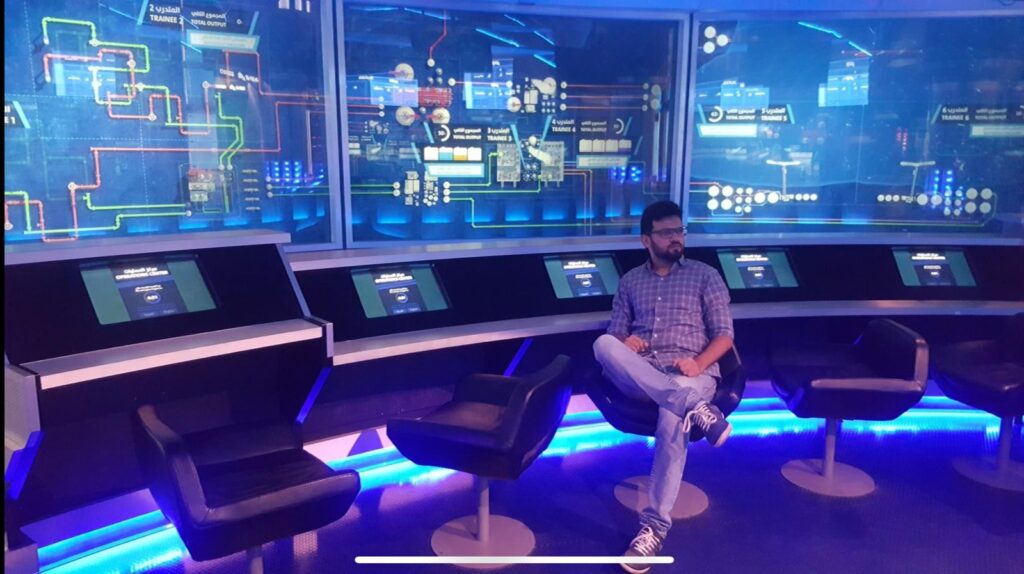In a recent discussion with Mr. Zubair Akhtar, a seasoned educator and advocate for technology in education, the potential benefits and challenges of virtual labs were brought to light. M Zubair Akhtar passionately argued that virtual labs, powered by technologies such as artificial intelligence (AI), could revolutionize the way we approach science education.
Mr. Zubair Akhtar is a distinguished STEM leader and educator, currently the Head of the Physics Department at Waad Academy in Jeddah, WAAD Academy, a Cambridge school in Jeddah, Saudi Arabia, is part of the Waad Education Company, which also includes Dar Al Dhikr and Bloom Schools.. Mr. Zubair also teaches Physics and is pursuing a PhD in the subject.
Q&A Session with Mr. Zubair Akhtar on the Role of Virtual Labs in Education
Q1: What are some of the benefits of using virtual labs in education, particularly in subjects like chemistry, physics, and biology?
Mr. Zubair Akhtar: Virtual labs, which incorporate technologies like artificial intelligence (AI) and other digital tools, offer several advantages. They allow students to build circuits and visualize chemical reactions, even when expensive or hazardous chemicals aren’t available. This not only reduces the overall cost of running physical labs but also provides a safer learning environment. For complex subjects like chemistry, physics, and biology, where real-world experimentation can be limited by safety concerns, costs, or logistical challenges, virtual labs offer a valuable alternative. They enable students to engage in intricate experiments without the risks associated with hazardous substances or the need for costly materials.
Q2: How do virtual labs enhance the learning experience for students?
Mr. Zubair Akhtar: Virtual labs promote active learning through interactive simulations that provide immediate feedback, helping students grasp abstract concepts more effectively. They are particularly beneficial because they are scalable and accessible, allowing students to perform experiments anytime, anywhere, and at their own pace. This makes science education more flexible and inclusive. Additionally, by integrating data analytics, virtual labs can personalize learning experiences, adapting to individual students’ needs and enhancing overall engagement and understanding.
Q3: Why do you think many teachers aren’t fully utilizing virtual labs in their teaching?
Mr. Zubair Akhtar: Many teachers don’t use virtual labs as much as they could because they might not be fully aware of their benefits. There’s a belief that virtual labs cannot match the physical experience of working with real chemicals and materials, which might make some educators hesitant to adopt them. This perception can lead to students missing out on valuable hands-on opportunities. Furthermore, busy school schedules often prevent students from visiting traditional labs as frequently as they should. By incorporating technology, we can address these challenges and maximize the learning potential for students.
Q4: Can virtual labs fully replace physical labs in education?
Mr. Zubair Akhtar: While I strongly believe that technology has the potential to render physical labs unnecessary, it’s essential to understand how to effectively integrate this technology into education. For example, during our discussion, I demonstrated a virtual experiment using a website like PhET Interactive Simulations. This platform showed how a parallel circuit works and how water can generate electricity. The virtual setup provided a clear view of how electrical currents move, something that’s often difficult to observe in a physical lab. However, it’s important to balance virtual and physical experiences to ensure students still gain hands-on skills. Chemcollective, biodigital, Labster, Gizmos are some prominent examples

Q5: What are your thoughts on the importance of hands-on experience in education, particularly when it comes to practical skills?
I expressed some concerns about relying too much on virtual labs, pointing out that hands-on experience is still very important. For instance, a medical student benefits more from working with a real patient than with a dummy. Similarly, students who build circuits by hand might develop a deeper understanding than if they only use virtual tools. Therefore, while virtual labs offer numerous advantages, they should complement, not replace, traditional hands-on learning.
Q6: Could you recommend some online virtual labs for educators and students who are interested in exploring this technology?
Mr. Zubair Akhtar: Certainly! There are several excellent online virtual labs available, such as PhET Interactive Simulations, ChemCollective, BioDigital, Labster, and Gizmos. These platforms provide a wide range of experiments and simulations that can enhance the learning experience and make science education more accessible and engaging for students.
Conclusion of discussion
In conclusion, Mr. Zubair Akhtar strongly believes that virtual labs have the potential to replace physical labs in science education. His extensive experience and deep understanding of both digital technology and science education underscore his conviction that virtual labs can offer a safer, more cost-effective, and flexible alternative to traditional lab environments. By harnessing the power of interactive simulations and data analytics, virtual labs can provide students with rich, engaging learning experiences that are accessible anytime and anywhere. As technology continues to advance, Mr. Akhtar’s insights suggest that the future of science education may well be defined by the seamless integration of virtual and physical learning tools.
Disclaimer
This discussion with Mr. Zubair Akhtar was conducted from a global perspective and was not intended to target or criticize any specific educational institution, school, or college. The views and opinions expressed are based solely on Mr. Akhtar’s experience, research, and observations. The conversation was held with Mr. Shayan Siddiqui, a Business and Economics expert, qualified educationist, and founder of IDEAL EDUCATORS Academy, which offers educational services worldwide. Mr. Siddiqui is currently working with WAAD Academy as a Business Learning Guide and runs a YouTube channel dedicated to educating students, and teachers, and enhancing leadership skills in both Urdu and English.
